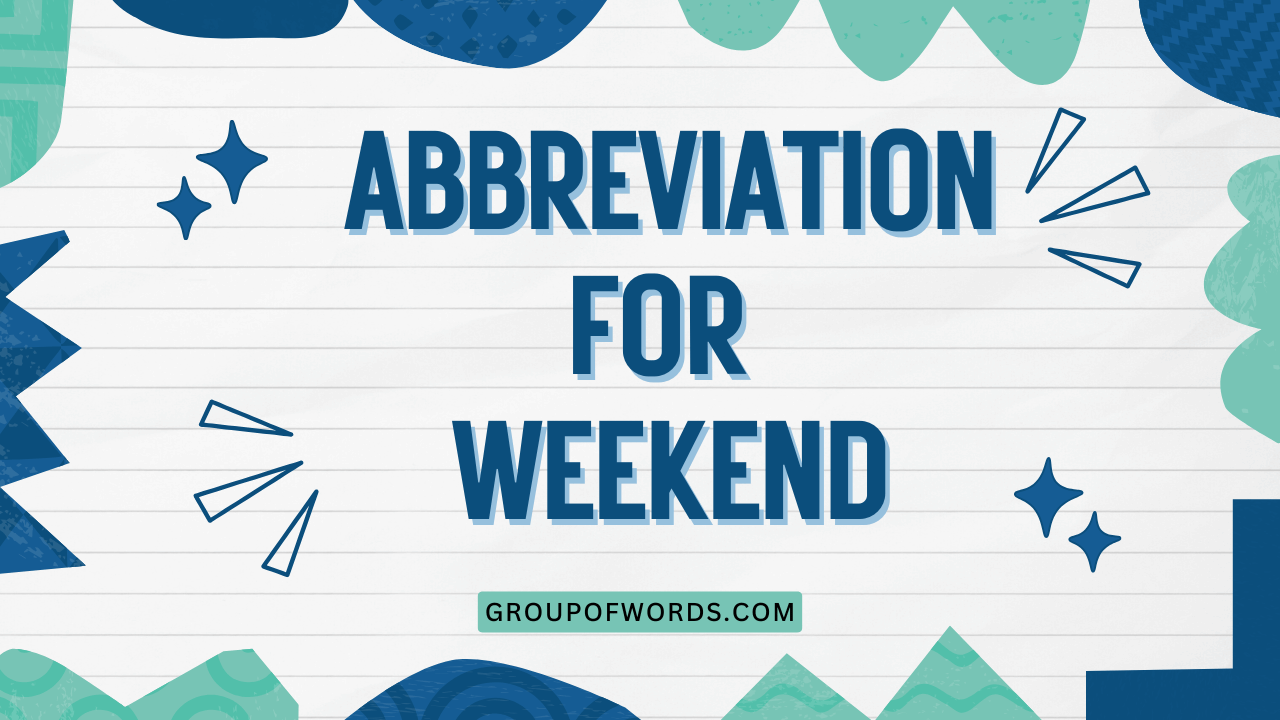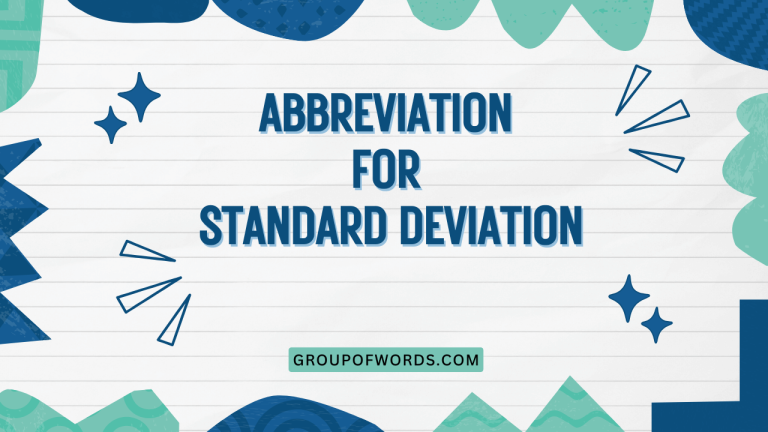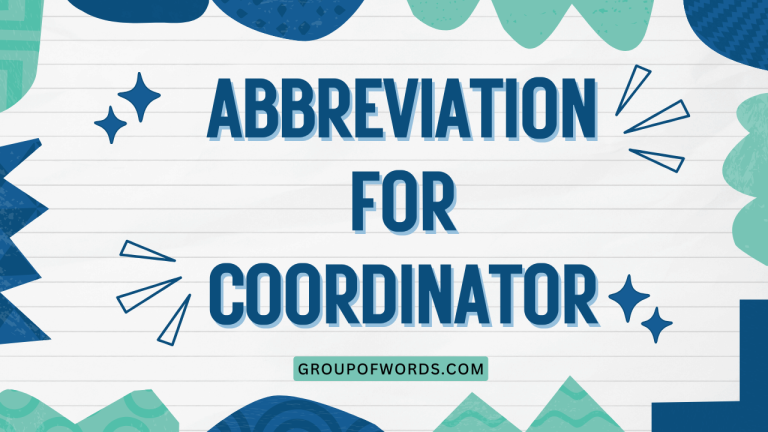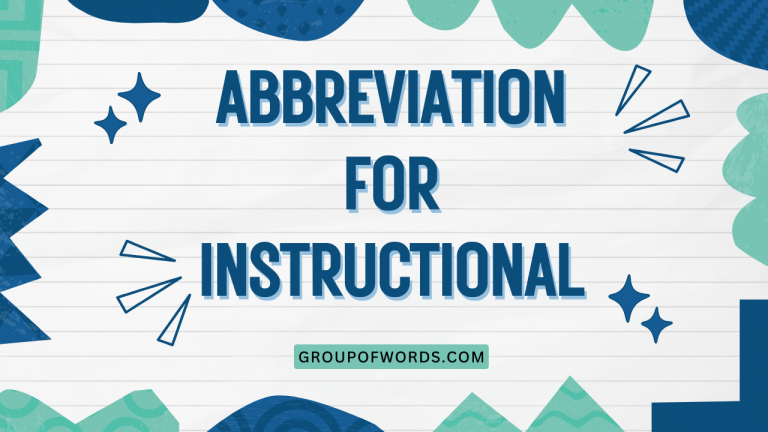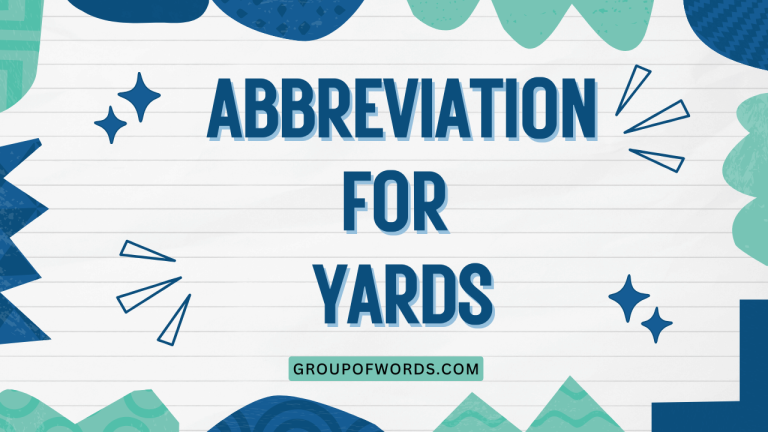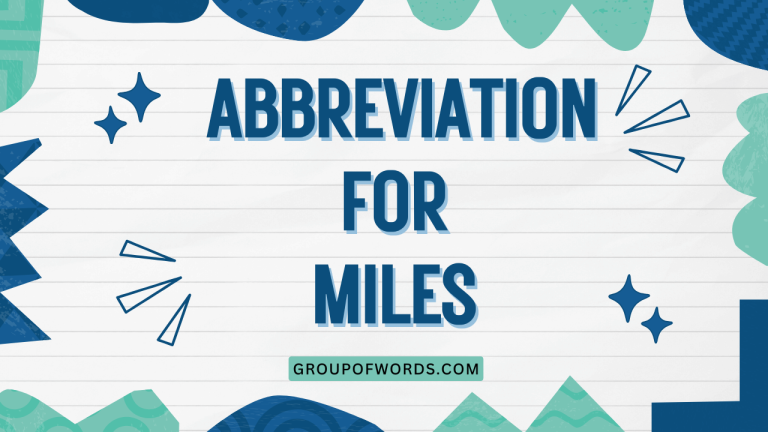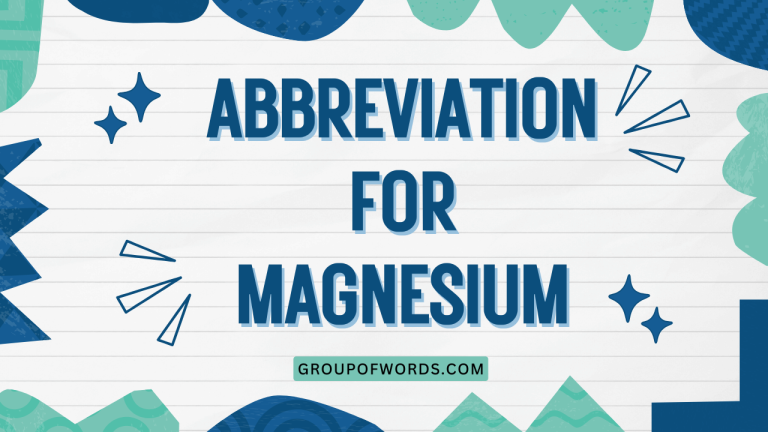Abbreviation for Weekend: A Comprehensive Grammar Guide
Understanding abbreviations is crucial for effective communication in English, especially in informal contexts like emails, texts, and social media. The abbreviation for “weekend” is a common example, and mastering its usage can enhance your writing and comprehension skills.
This article provides a detailed exploration of the abbreviation for “weekend,” covering its definition, structure, variations, usage rules, common mistakes, and practical exercises. Whether you’re a beginner or an advanced learner, this guide will equip you with the knowledge and skills to use this abbreviation correctly and confidently.
This comprehensive guide is designed to benefit a wide range of learners, from students studying English grammar to professionals seeking to refine their communication skills. By delving into the nuances of abbreviation usage, this article aims to improve your overall command of the English language.
Table of Contents
- Introduction
- Definition of Weekend Abbreviation
- Structural Breakdown of “Weekend” Abbreviation
- Types and Categories of Weekend Abbreviations
- Examples of Weekend Abbreviation Usage
- Usage Rules for Weekend Abbreviation
- Common Mistakes with Weekend Abbreviation
- Practice Exercises
- Advanced Topics: Contextual Variations
- Frequently Asked Questions (FAQ)
- Conclusion
Definition of Weekend Abbreviation
The most common abbreviation for “weekend” is “wknd.” It is a shortened form of the word, created by removing some of the letters while still retaining its recognizable structure. An abbreviation, in general, is a shortened form of a word or phrase used to represent the whole. Abbreviations are frequently used to save time and space in writing and speaking. In the case of “wknd,” it efficiently conveys the meaning of “weekend” in a concise manner.
The abbreviation “wknd” is classified as a clipped abbreviation, where a portion of the original word is simply removed. Its primary function is to provide a shorter alternative for “weekend,” particularly in informal contexts where brevity is valued.
The abbreviation is widely accepted and understood in various settings, including text messages, emails, social media posts, and casual conversations.
The abbreviation “wknd” maintains the same meaning as “weekend,” referring to the period from Friday evening to Sunday evening, typically associated with leisure time, rest, and activities outside of work or school. Understanding this meaning is crucial for interpreting and using the abbreviation correctly.
Structural Breakdown of “Weekend” Abbreviation
The abbreviation “wknd” is formed by taking the first two letters of “week” (“wk”) and combining them with the first two letters of “end” (“nd”). This creates a compact representation of the original word.
There are no specific grammatical rules governing the formation of this particular abbreviation beyond the general principles of clipping.
The structure “wknd” is straightforward and easy to remember. The absence of a period after the abbreviation is a common practice, especially in informal writing.
While some style guides may suggest using a period after abbreviations, it is generally omitted in the case of “wknd” due to its widespread use in informal contexts.
The capitalization of “wknd” is usually determined by the context in which it is used. At the beginning of a sentence, it would be capitalized (“Wknd”).
Otherwise, it is typically written in lowercase (“wknd”). There are no strict rules regarding capitalization, but consistency is recommended within a given piece of writing.
Types and Categories of Weekend Abbreviations
While “wknd” is the most common abbreviation for “weekend,” there are some variations and related abbreviations that are worth noting. These variations, while less frequent, can provide additional context or nuance in specific situations.
Other Variations
Although less common, you might encounter these variations:
- W/E: This abbreviation uses the first letter of “week” and “end,” separated by a slash. It’s less common than “wknd” but still understood.
- Weekend(s): Sometimes, the full word “weekend” is used, especially in more formal writing. The plural form, “weekends,” is also common.
It’s important to be aware of these variations, even if you primarily use “wknd,” to ensure you can understand them when encountered in different contexts.
Contextual Use
The choice of abbreviation or the full word can depend on the context:
- Informal Writing: “Wknd” is perfectly acceptable in text messages, social media posts, and casual emails.
- Formal Writing: In formal reports, academic papers, or professional correspondence, it’s best to use the full word “weekend” or “weekends.”
- Business Communication: In internal memos or informal business emails, “wknd” might be acceptable, but it’s always a good idea to consider your audience and the overall tone of the communication.
Examples of Weekend Abbreviation Usage
The following examples illustrate how the abbreviation “wknd” can be used in various contexts. These examples are designed to provide a clear understanding of its practical application in different situations.
The tables below demonstrate various uses, including sentences, questions, and informal notes.
Examples in Sentences
This table provides examples of “wknd” used in full sentences. Notice how the meaning remains clear and the abbreviation seamlessly integrates into the sentence structure.
| Sentence | Context |
|---|---|
| I’m looking forward to the wknd. | Casual conversation |
| What are your plans for the wknd? | Asking about leisure activities |
| Let’s catch up over the wknd. | Suggesting a meeting |
| The wknd was incredibly relaxing. | Describing past events |
| I need to finish this project before the wknd. | Work-related task |
| She’s traveling this wknd. | Personal travel plans |
| The concert is scheduled for this wknd. | Event planning |
| I’m planning a road trip for the wknd. | Vacation planning |
| He’s working all wknd. | Work commitment |
| We’re having a party this wknd. | Social event |
| The weather forecast for the wknd looks promising. | Discussing weather |
| I’m going hiking this wknd. | Outdoor activity |
| She’s visiting her family this wknd. | Family visit |
| We’re going to the beach this wknd. | Beach outing |
| He’s attending a conference this wknd. | Professional event |
| I’m staying home this wknd. | Relaxing at home |
| She’s volunteering this wknd. | Charitable activity |
| We’re going camping this wknd. | Camping trip |
| He’s renovating his house this wknd. | Home improvement |
| I’m reading a book this wknd. | Leisure reading |
| The sale ends this wknd. | Shopping |
| Wknd is almost here! | Excitement for the upcoming weekend |
| Wknd plans? | Inquiring about the other person’s plans |
| Best wknd ever! | Expressing enjoyment |
| Long wknd ahead. | Anticipating an extended weekend |
Examples in Informal Notes and Messages
This table demonstrates the use of “wknd” in informal notes and messages, where brevity and informality are common. In these contexts, abbreviations are highly appropriate and contribute to efficient communication.
| Note/Message | Context |
|---|---|
| Meeting postponed to next wknd. | Scheduling update |
| Need to finish report by wknd. | Work reminder |
| Movie night this wknd? | Suggesting an activity |
| Wknd getaway planned! | Excited announcement |
| Don’t forget groceries for wknd. | Shopping list reminder |
| Wknd project: garden cleanup. | Home improvement plan |
| Book club meeting this wknd. | Social event reminder |
| Wknd reading list: 3 books. | Personal goal |
| Tickets booked for wknd show. | Entertainment plan |
| Wknd hike: Mt. Everest. | Adventure plan |
| Remember wknd party at John’s. | Reminder |
| Pack light for wknd trip. | Travel advice |
| Wknd budget: $100. | Financial plan |
| Discuss wknd plans tomorrow. | Future planning |
| Wknd volunteer schedule updated. | Volunteer work |
| Check wknd weather forecast. | Weather check |
| Wknd relaxation time needed! | Personal need |
| Wknd car wash appointment confirmed. | Appointment |
| Wknd cooking: new recipe. | Cooking plan |
| Wknd shopping list: milk, eggs, bread. | Shopping list |
| Wknd reading: War and Peace | Personal goal |
| Wknd cleaning: Garage | Home improvement plan |
| Wknd exercise: 10km run | Personal health |
| Wknd visit: Grandma’s house | Family visit |
| Wknd movie: New release | Entertainment plan |
Examples in Questions
This table illustrates how to use “wknd” in questions. This demonstrates how the abbreviation can be used to efficiently ask about plans, availability, or experiences related to the weekend.
| Question | Context |
|---|---|
| Any plans for the wknd? | Casual inquiry |
| Free this wknd? | Checking availability |
| How was your wknd? | Asking about someone’s experience |
| Working this wknd? | Checking work schedule |
| Party this wknd? | Inquiring about a social event |
| Travel plans for wknd? | Asking about travel |
| Busy this wknd? | Checking availability |
| Movie this wknd? | Suggesting an activity |
| Shopping this wknd? | Asking about shopping plans |
| Visit family this wknd? | Asking about family visits |
| Hike this wknd? | Suggesting an outdoor activity |
| Read any good books this wknd? | Asking about leisure reading |
| Clean the house this wknd? | Asking about chores |
| Renovate this wknd? | Asking about home improvement |
| Volunteer this wknd? | Asking about charitable activities |
| Camp this wknd? | Suggesting a camping trip |
| Beach this wknd? | Suggesting a beach outing |
| Conference this wknd? | Asking about professional events |
| Relax this wknd? | Asking about relaxation plans |
| What are your wknd goals? | Asking about someone’s personal goals |
| Did you have fun this wknd? | Asking about someone’s experience |
| How did you spend your wknd? | Asking about someone’s activities |
| Where are you going this wknd? | Asking about someone’s plans |
| Are you free any day this wknd? | Checking availability |
| Want to grab coffee this wknd? | Suggesting an activity |
Usage Rules for Weekend Abbreviation
The usage of “wknd” is primarily governed by context and formality. While widely accepted in informal settings, it’s crucial to understand when it’s appropriate and when to use the full word “weekend.” Consistency in style and tone is also essential for maintaining clarity and professionalism in writing.
Formality
“Wknd” is generally considered informal. Use it in:
- Text messages
- Casual emails to friends and family
- Social media posts
- Informal notes
Avoid it in:
- Formal letters
- Academic papers
- Business reports
- Legal documents
Punctuation and Capitalization
As previously mentioned, a period after “wknd” is usually omitted, especially in informal contexts. Capitalization follows the standard rules of English grammar: capitalize at the beginning of a sentence, otherwise use lowercase.
Consistency
Maintain consistency in your writing. If you start using “wknd” in a document, stick with it unless the context changes and requires a more formal tone.
Mixing abbreviations and full words can create a disjointed reading experience.
Common Mistakes with Weekend Abbreviation
While “wknd” is a straightforward abbreviation, some common mistakes can occur. Being aware of these errors can help you avoid them and ensure your writing is clear and accurate.
The table below includes common mistakes with the abbreviation “wknd” and the correct alternatives, along with explanations.
| Incorrect | Correct | Explanation |
|---|---|---|
| Wk.end | Wknd | The abbreviation doesn’t require a period. |
| WKND | wknd (or Weekend at start of sentence) | Unless at the beginning of a sentence, lowercase is preferred in informal contexts. |
| Weeknd | Wknd | This is a misspelling of the abbreviation itself. |
| Using “wknd” in a formal report. | Using “weekend” in a formal report. | “Wknd” is too informal for formal writing. |
| Mixing “wknd” and “weekend” inconsistently. | Using either “wknd” or “weekend” consistently within the same piece of writing. | Inconsistency can be confusing and unprofessional. |
| Weknd | Wknd | Misspelling due to phonetic similarity |
| Wkn’d | Wknd | Incorrect use of apostrophe |
| The wk-end | The wknd | Incorrect hyphenation |
| Week end | Wknd | Incorrect spacing |
| Wknd. | Wknd | Unnecessary period at the end |
Practice Exercises
Test your understanding of the “wknd” abbreviation with these practice exercises. These exercises are designed to reinforce your knowledge of the rules and usage guidelines discussed in this article.
Each question requires you to either identify the correct usage of “wknd” or rewrite sentences to include the abbreviation appropriately.
Exercise 1: Choose the Correct Sentence
Select the sentence that correctly uses the abbreviation “wknd.”
| Question | Options | Answer |
|---|---|---|
| 1. Which sentence is correct? | a) I’m excited for the Weeknd. b) I’m excited for the wknd. c) I’m excited for the Wk.end. | b) |
| 2. Which sentence is correct? | a) What are you doing this WKND? b) What are you doing this wknd? c) What are you doing this week end? | b) |
| 3. Which sentence is correct? | a) Let’s meet up next wknd. b) Let’s meet up next Week end. c) Let’s meet up next Wk.end. | a) |
| 4. Which sentence is correct? | a) The Wknd was great! b) The wknd was great! c) The weeknd was great! | b) |
| 5. Which sentence is correct? | a) I have a lot of work to do before the wknd. b) I have a lot of work to do before the Week end. c) I have a lot of work to do before the Wk.end. | a) |
| 6. Which is the most appropriate for a text message? | a) Looking forward to the weekend. b) Looking forward to the wknd. c) Looking forward to the wk. end. | b) |
| 7. Which is the most appropriate for a formal email? | a) Please submit your reports by the end of the wknd. b) Please submit your reports by the end of the weekend. c) Please submit your reports by the end of the wk. end. | b) |
| 8. Which sentence is correct? | a) Wknd is almost here! b) Weekend is almost here! c) W.k.n.d is almost here! | a) |
| 9. Which sentence is correct? | a) Do you have any wknd plans? b) Do you have any Week end plans? c) Do you have any W.k.n.d plans? | a) |
| 10. Which sentence is correct? | a) It was the best wknd ever. b) It was the best Week end ever. c) It was the best W.k.n.d ever. | a) |
Exercise 2: Rewrite the Sentences
Rewrite the following sentences using the abbreviation “wknd” where appropriate. If the sentence is already suitable for formal writing, leave it as is.
| Question | Answer |
|---|---|
| 1. I am looking forward to the weekend. | I am looking forward to the wknd. |
| 2. What are your plans for the weekend? | What are your plans for the wknd? |
| 3. The report is due by the end of the weekend. | The report is due by the end of the weekend. (Formal, no change) |
| 4. Let’s catch up over the weekend. | Let’s catch up over the wknd. |
| 5. I had a great weekend. | I had a great wknd. |
| 6. We should finalize the agreement before the weekend. | We should finalize the agreement before the weekend. (Formal, no change) |
| 7. She is traveling this weekend. | She is traveling this wknd. |
| 8. He will be working all weekend. | He will be working all wknd. |
| 9. The weather forecast for the weekend looks promising. | The weather forecast for the wknd looks promising. |
| 10. I am planning a detailed analysis for the weekend. | I am planning a detailed analysis for the weekend. (Formal, no change) |
Advanced Topics: Contextual Variations
While the basic usage of “wknd” is straightforward, understanding its contextual variations can help you use it more effectively and appropriately. Factors such as regional differences, industry-specific jargon, and evolving language trends can influence how abbreviations are perceived and used.
Regional Differences
Although “wknd” is widely understood, some regions may prefer other abbreviations or the full word “weekend.” Being aware of these regional preferences can help you tailor your communication to your audience.
Industry-Specific Jargon
In certain industries, specific abbreviations related to work schedules or project deadlines may be used in conjunction with or instead of “wknd.” For example, in the tech industry, you might see abbreviations related to sprint cycles or release dates that incorporate the concept of the weekend.
Evolving Language Trends
Language is constantly evolving, and new abbreviations and slang terms emerge regularly. Staying up-to-date with these trends can help you understand and use language more effectively.
While “wknd” is a well-established abbreviation, it’s important to be aware of any new alternatives that may gain popularity.
Frequently Asked Questions (FAQ)
This section addresses some frequently asked questions about the abbreviation “wknd.” These questions and answers are designed to provide further clarification and address any lingering doubts you may have about its usage.
- Is “wknd” a universally accepted abbreviation?
Yes, “wknd” is widely accepted and understood in most English-speaking countries, particularly in informal contexts. However, it’s always a good idea to consider your audience and the formality of the situation before using it.
- Should I use a period after “wknd”?
Generally, no. The period is usually omitted in informal writing. Some style guides may suggest using a period after abbreviations, but it’s not common practice with “wknd.”
- Is it okay to use “wknd” in a business email?
It depends on the context and your relationship with the recipient. If it’s an internal email among colleagues and the tone is informal, “wknd” might be acceptable. However, in formal business correspondence, it’s best to use “weekend.”
- What’s the difference between “wknd” and “W/E”?
“Wknd” is the more common and widely recognized abbreviation. “W/E” is less frequent but still understood. Choose the one you’re most comfortable with, but be aware that “wknd” is generally preferred.
- Can I use “wknd” at the beginning of a sentence?
Yes, but capitalize it: “Wknd was great!” Follow the standard capitalization rules for English sentences.
- Is “wknd” considered slang?
No, “wknd” is not considered slang. It’s a standard abbreviation that’s been in use for a long time. Slang terms are usually more informal and may not be widely understood.
- Are there any situations where I should *never* use “wknd”?
Yes, in highly formal or legal documents, academic papers, and official reports, you should always use the full word “weekend” to maintain a professional and serious tone.
- How can I remember when to use “wknd” vs. “weekend”?
Think of “wknd” as appropriate for quick, casual communication, like texting a friend. Use “weekend” when you need to be more formal or professional.
Conclusion
Mastering the abbreviation “wknd” is a valuable skill for effective communication in English. Understanding its definition, structure, usage rules, and common mistakes can help you use it confidently and appropriately in various contexts.
Remember that context and formality are key factors in determining whether to use “wknd” or the full word “weekend.”
By practicing the exercises and reviewing the examples provided in this article, you can reinforce your understanding of “wknd” and improve your overall command of English abbreviations. Continue to observe how native speakers use abbreviations in different situations, and adapt your usage accordingly.
With practice and attention to detail, you’ll become proficient in using “wknd” and other abbreviations effectively.
The key takeaways from this guide include the importance of context, the acceptance of “wknd” in informal settings, and the need for consistency in your writing. Keep these points in mind as you continue to develop your English language skills.
Happy learning!
